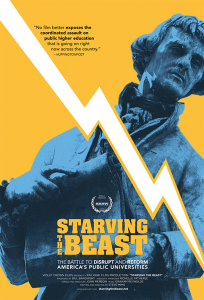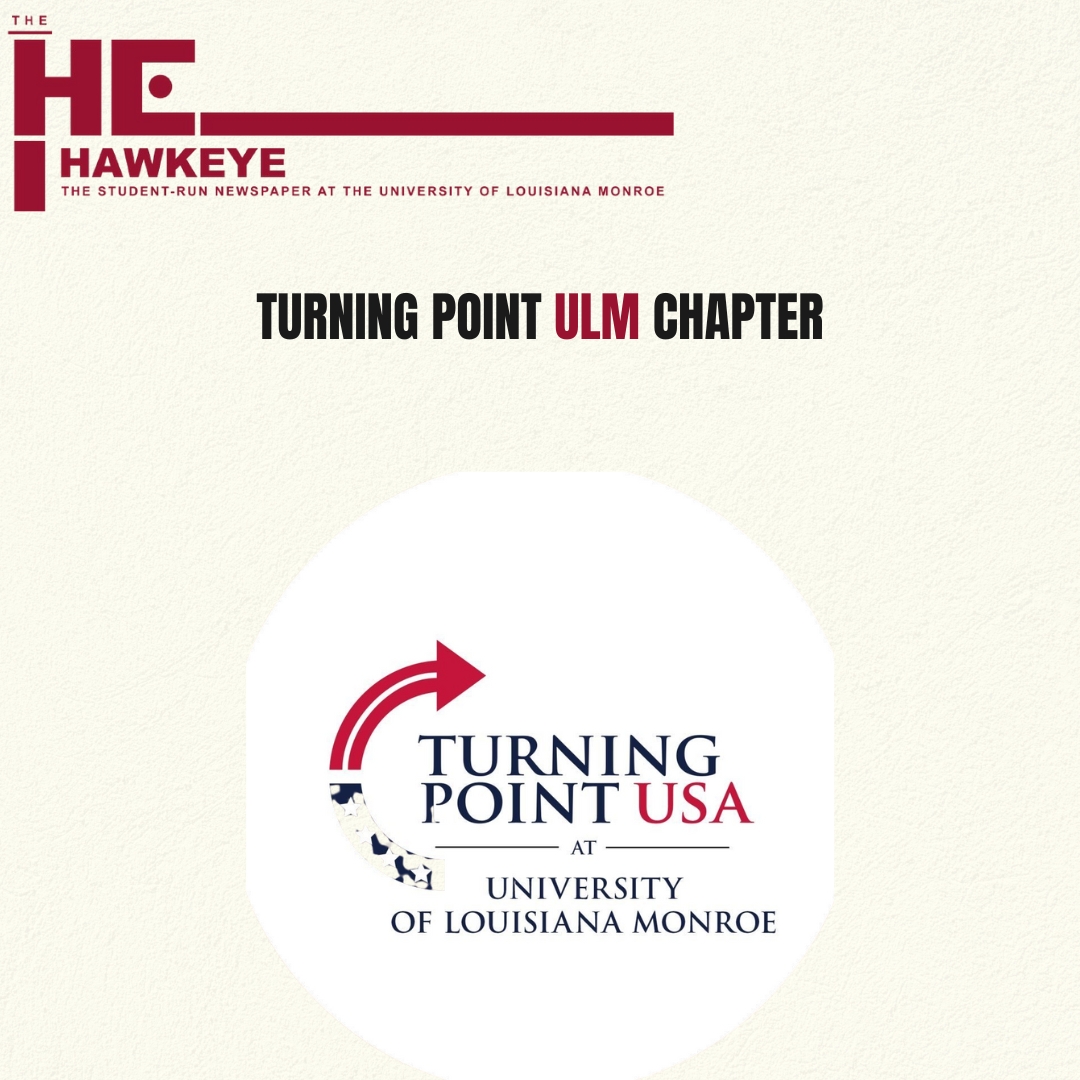Louisiana’s higher education situation isn’t going unnoticed by those outside state lines.
A documentary called “Starving the Beast” was shown in Biedenharn Recital Hall Tuesday as part of a collaboration with several other area colleges and universities. The do cumentary discusses the continuing power struggle between public universities and state legislatures across the nation and focused partially on Louisiana.
cumentary discusses the continuing power struggle between public universities and state legislatures across the nation and focused partially on Louisiana.
The film was shown as a way to hopefully reboot discussion of higher education’s importance.
“If we don’t feel comfortable discussing these subjects on a college campus then I’m not sure what hope we have for America,” said Lisa Miller, Chief Communications Officer, while introducing the film.
The film looked at several state universities where students are now being seen more as consumers than as future citizens. This shift in perspective is leading to less discussion in the classroom and a higher cost burden for students. Now, universities primarily see their duty as preparing students for jobs instead of providing a place for them to grow intellectually, according to the film.
One of the six universities discussed was Louisiana State University, which is the only other university in the state where the film has been shown.
During the LSU segment, the film focused on Louisiana’s continuous higher education budget cuts. The film says that a no-tax pledge signed by previous Gov. Bobby Jindal paired with an increasingly common view of universities as businesses are forcing Louisiana students to pay more for less.
James Carville, a Louisiana political commentator, said in the film that the Louisiana legislature essentially tricks universities here by threatening enough budget cuts to shut down a school, then only cutting a portion of that. In the end, schools feel grateful to the legislature because they were spared a shutdown, despite still taking life-threatening cuts, Carville said.
While the film focused on budget cuts in Louisiana, it focused on intellectual cuts elsewhere.
All over the nation, higher education is being “commodified.” Public universities are being seen more as profit centers than centers for building up an intellectually-rich generation. As part of this change, many legislatures are calling for reform throughout universities. Faculty and administration who are not seen as progressive enough are pushed out.
The film also focused on the potential future of “Student Investment Plans” that would allow a corporation or hedge fund to pay for a student’s tuition as long as they complete the degree that that corporation wants and pay back a percentage of their earnings for a set amount of years after graduation.
President Nick Bruno said although the film focused on monetary starvation in Louisiana, intellectual starvation is at risk here too.
“If you don’t have money to get an education, then we will see an educational starvation. Maybe not from the point of detracting, but from the point of not moving forward,” Bruno said.
He added that students need to seek support from Louisiana legislature to prevent further cuts.
Elliot Gonzalez, a junior political science major, attended the screening and said that ULM’s situation is following the national pattern, although it is in a better position than most.
“Our tight-knit social community makes it a little harder to perpetuate a specific brand of education,” Gonzalez said.
Gonzalez also said that ULM tends to be good at budgeting and that our debts are not as bad as they could be, like LSU’s.







